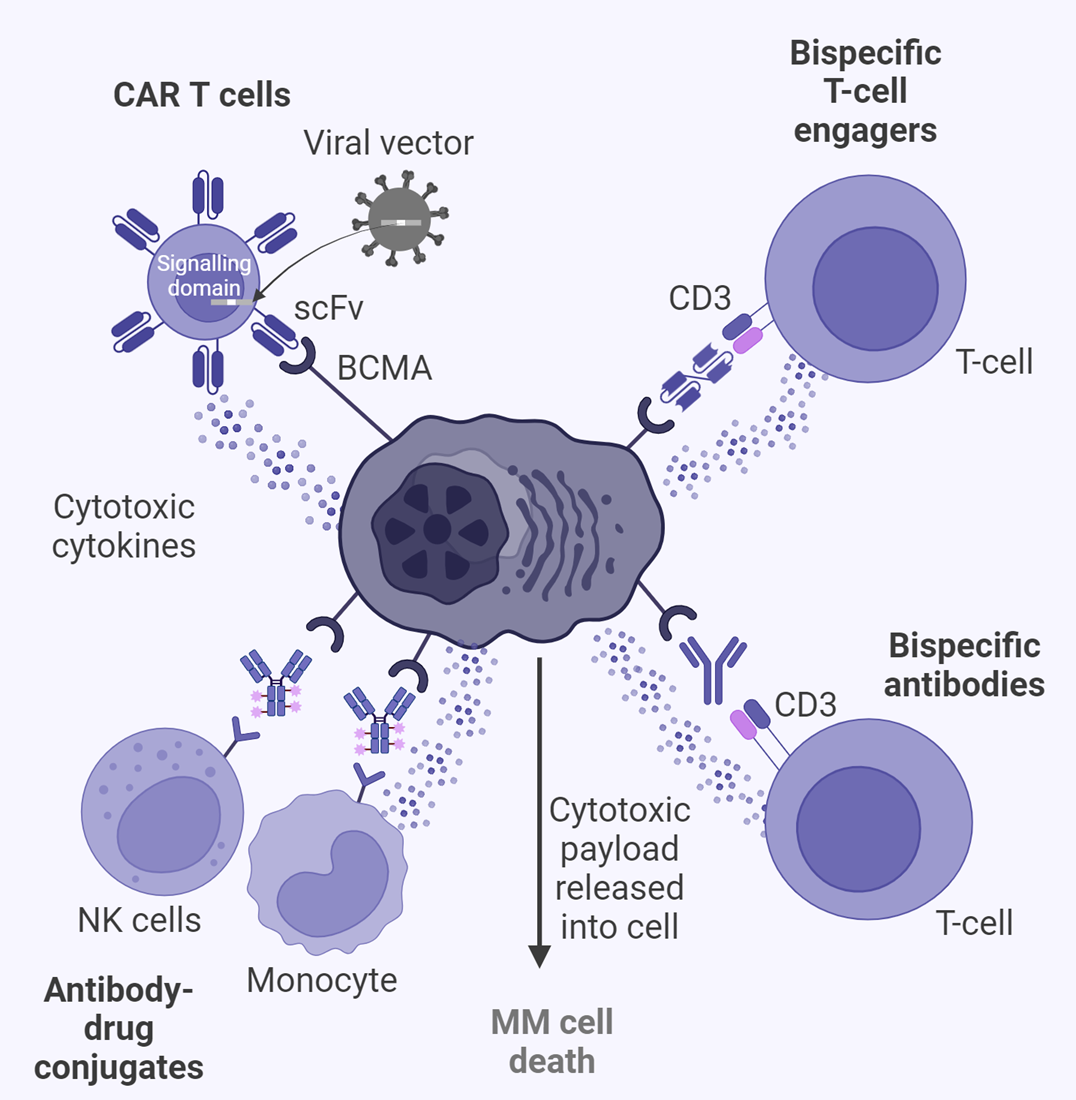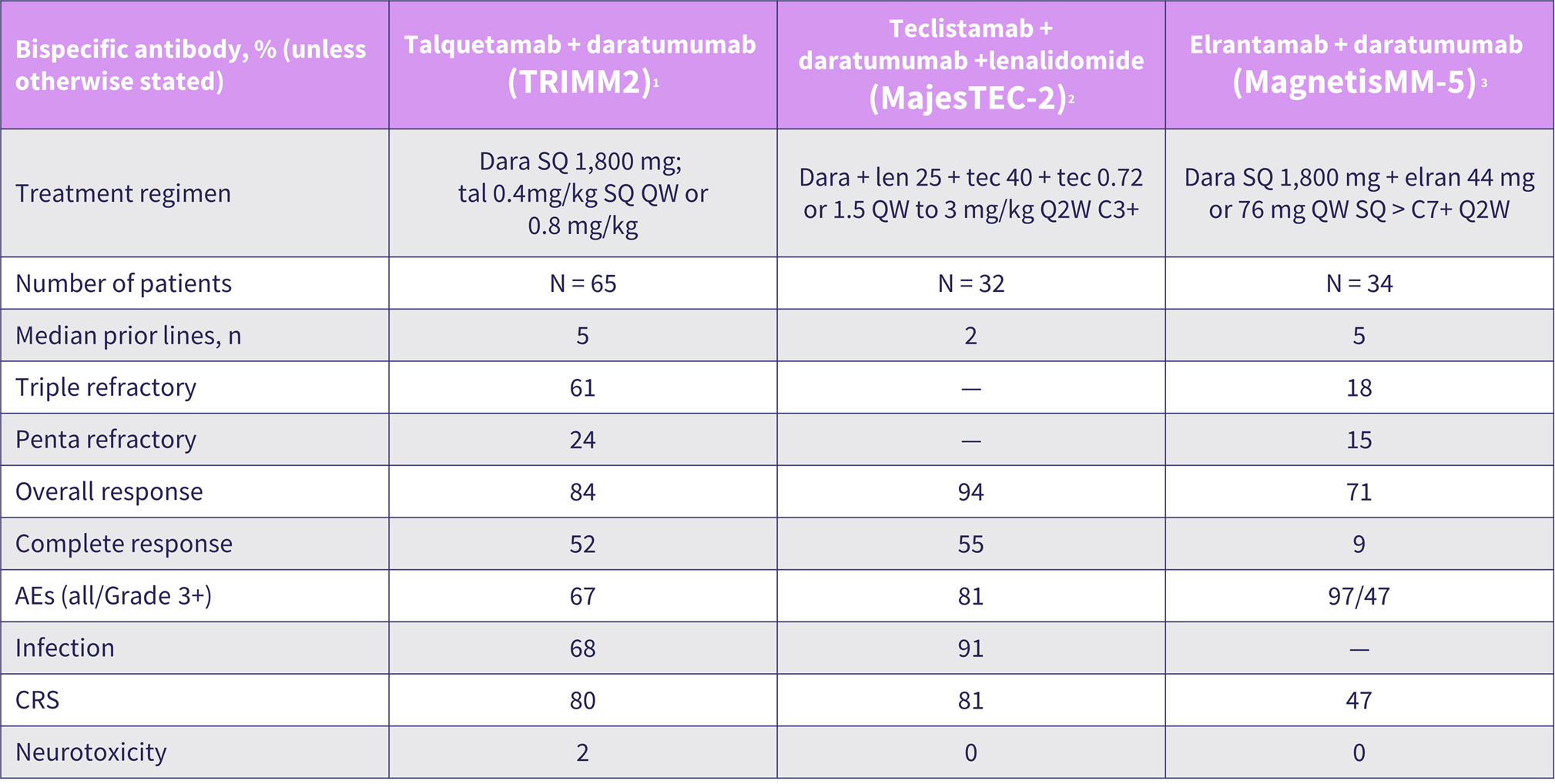All content on this site is intended for healthcare professionals only. By acknowledging this message and accessing the information on this website you are confirming that you are a Healthcare Professional. If you are a patient or carer, please visit the International Myeloma Foundation or HealthTree for Multiple Myeloma.
The Multiple Myeloma Hub uses cookies on this website. They help us give you the best online experience. By continuing to use our website without changing your cookie settings, you agree to our use of cookies in accordance with our updated Cookie Policy
Introducing

Now you can personalise
your Multiple Myeloma Hub experience!
Bookmark content to read later
Select your specific areas of interest
View content recommended for you
Find out moreThe Multiple Myeloma Hub website uses a third-party service provided by Google that dynamically translates web content. Translations are machine generated, so may not be an exact or complete translation, and the Multiple Myeloma Hub cannot guarantee the accuracy of translated content. The Multiple Myeloma Hub and its employees will not be liable for any direct, indirect, or consequential damages (even if foreseeable) resulting from use of the Google Translate feature. For further support with Google Translate, visit Google Translate Help.
Symposium | BCMA-directed bispecific antibodies
Featured
Bookmark this article
Video series
Multiple Myeloma Hub Virtual Symposium 2024: Current and future perspectives for bispecific antibodies
During the Multiple Myeloma Hub virtual symposium held on March 11, 2024, “Current and future perspectives for bispecific antibodies in multiple myeloma: Learnings from 2023,” Naresh Bumma, The Ohio State University, Columbus, US, delivered a presentation on B-cell maturation antigen (BCMA)-directed bispecific antibodies in multiple myeloma (MM).
Bumma provided an overview of T-cell engagement in relapsed/ refractory MM (Figure 1), sharing the latest clinical trial data on single agents and combination therapies in MM, including BCMA-directed bispecific antibodies (Figure 2). Bumma highlighted patient-specific clinical factors, preferences, and access as determinants of treatment selection, then closed with an overview of strategies to effectively manage adverse events and infections associated with the use of bispecific antibodies.
Figure 1. T-cell engagement in RRMM*

Ab, antibody; BCMA, B-cell maturation antigen; BM, bone marrow; CAR, chimeric antigen receptor; FcRH5, Fc receptor-homolog 5; GC, germinal center; GPRC5D, G protein–coupled receptor class C group 5 member D; IFN, Interferon; IL, interleukin; MM, multiple myeloma; NK, natural killer; PC, plasma cell; RR, relapsed/refractory; scFv, single-chain fragment variable; SLAM, signaling lymphocytic activation molecule; TNF, tumor necrosis factor.
*Adapted from Cho, et al.1
Figure 2. Summary of patient characteristics and topline data from clinical trials of bispecific antibody combinations*

AE, adverse event; C, cycle; CRS, cytokine release syndrome; dara, daratumumab; elran, elranatamab; len, lenalidomide; SC, subcutaneous; tec, teclistamab; QW, every week; Q2W, biweekly.
*Data from Dholaria, et al.2; Searle, et al.3; Grosicki, et al.4
This independent medical activity was funded by Janssen and Bristol Myers Squibb. All content was developed independently by the faculty. The funders were allowed no influence on the content of this activity.
- Cho S, Yeh T, Anderson K, et al. Bispecific antibodies in multiple myeloma treatment: A journey in progress. Front Oncol. 2022;12:1032775. DOI: 3389/fonc.2022.1032775.
- Dholaria B, Weisel K, Mateos M, et al. Talquetamab (tal) + daratumumab (dara) in patients (pts) with relapsed/refractory multiple myeloma (RRMM): Updated TRIMM-2 results. J Clin Oncol. 2023;14(Suppl.16). DOI: 1200/JCO.2023.41.16_suppl.8003
- Grosicki S, Crafoord J, Koh Y, et al. MagnetisMM-5: An open-label, multicenter, randomized phase 3 study of elranatamab as monotherapy and in combination with daratumumab in patients with relapsed/refractory multiple myeloma. J Clin Oncol. 2022;40(16). DOI: 1200/JCO.2022.40.16_suppl.TPS8074
- Moreau P, Garfall A, van de Donk N, et al. Teclistamab in relapsed or refractory multiple myeloma. N Engl J Med. 2022;387(6):495-505. DOI: 1056/NEJMoa2203478.
Video series
Multiple Myeloma Hub Virtual Symposium 2024: Current and future perspectives for bispecific antibodies
Your opinion matters
30 votes - 2 days left ...
Newsletter
Subscribe to get the best content related to multiple myeloma delivered to your inbox






